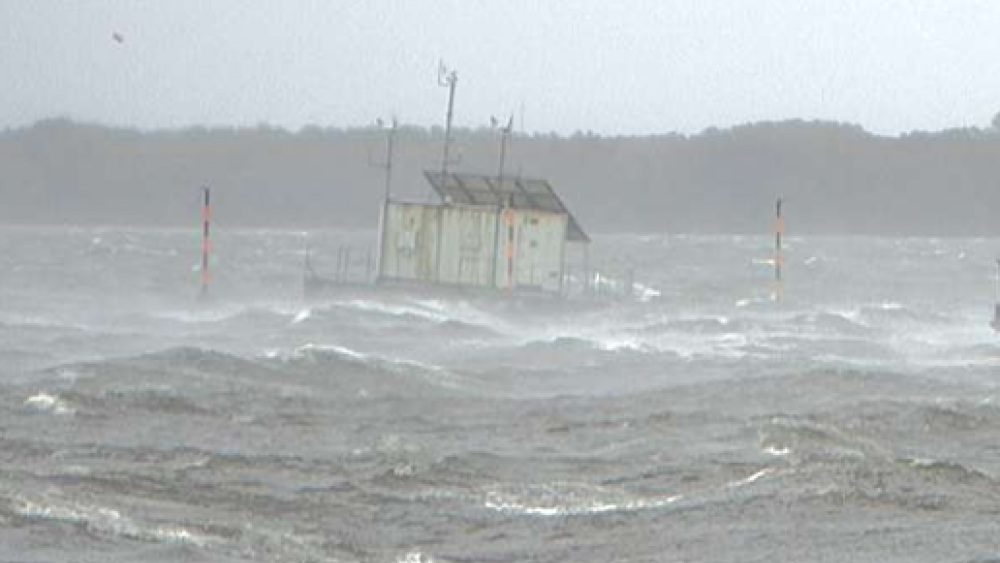
In 2017, storm Xavier caused our measuring station on Lake Müggelsee to shake. I Photo: Webcam IGB
"We need to learn more quickly in order to better respond to the very real threat of climate change to lakes around the world," says study leader Jason Stockwell, professor and director of the Rubenstein Ecosystem Science Laboratory an der Universität Vermont in den USA.
The researchers focused on phytoplankton because it is the basis of the food web and a critical factor for water quality. In analyzing several thousand scientific articles, they found only 31 studies on 18 lakes that linked storms to freshwater lakes and phytoplankton. The information was not only sparse, but also contradictory. But things are progressing.
"Currently, several studies on the consequences of extreme weather events have been launched and are being conducted at global level. Networks such as the Global Lake Ecological Observatory Network (GLEON), in which IGB is actively involved with its longterm programmes at Lake Müggelsee and Lake Stechlinsee, provide data with high temporal resolution. These data are an excellent basis for studying the effects of extreme events and developing scenarios of storm impacts on freshwaters under future climate scenarios," says Rita Adrian, describing the positive development.
The researchers also propose to link physical models for water catchment areas and lakes with biological models in order to be able to assess the reactions of the phytoplankton to storm induced changes.
"Research knowledge is the basis for developing efficient adaptation measures. It is about nothing less than protecting our most important drinking water reservoirs from future threats and preserving them for future generations," sums up Hans-Peter Grossart.
Read the publication online in Global Change Biology >
The text is based on a press release from the University of Vermont, published on 5 March 2020






